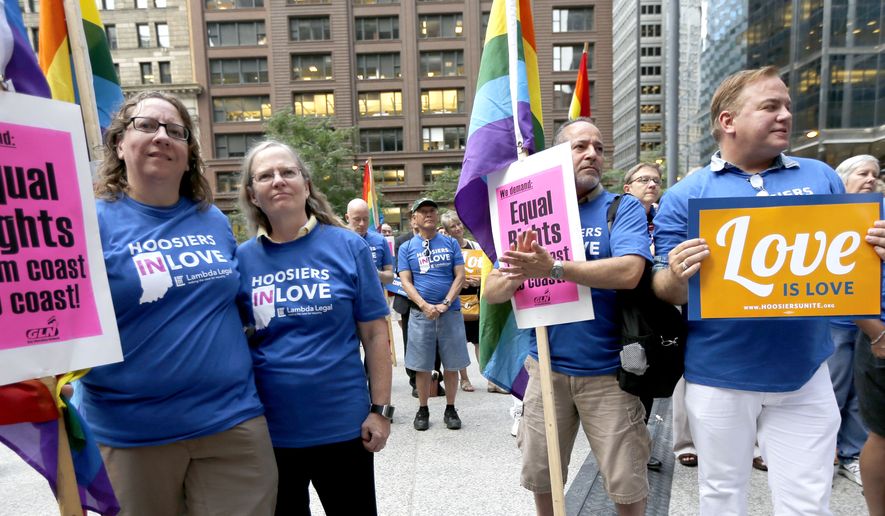A panel of federal judges ended up in a bizarre debate this week over bisexuality where the evidence offered ranged from testimonies from past homosexual partners to a YouTube video of gay men mocking those who identify as bisexual.
The 7th U.S. Circuit Court of Appeals was trying to decide whether Ray Fuller, a Jamaican man who the government is trying to deport to back home after serving time for attempted criminal sexual assault, should be granted a reprieve and remain in the U.S. because he’d be targeted for his orientation in Jamaica.
In a 2-1 ruling, the court ruled that Mr. Fuller’s credibility was suspect, and upheld a lower court’s ruling doubting his claims of bisexuality. But in a stinging dissent Judge Richard Posner blasted his fellow judges at all levels, arguing some didn’t appear to understand bisexuality while others were too willing to question Mr. Fuller’s credibility.
“And how exactly does one prove that he (or she) is bisexual? Persuade all one’s male sex partners to testify, to write letters, etc?” Judge Posner demanded of his colleagues.
The case has drawn critical attention in the LGBT community, and raises thorny questions about how the immigration system decides tricky humanitarian cases that rely on the credibility of the applicant.
Mr. Fuller came to the U.S. in 1999 on a fiance visa, went on to marry the woman who sponsored him, and have a daughter with her. He obtained a conditional green card but he and his wife failed to show up for a required interview and his status was revoked in 2004. They would divorce a year later.
He also pleaded guilty in 2004 to attempted criminal sexual assault, was sentenced to probation, violated the terms of his probation and in 2012 was sentenced to four years in prison. Homeland Security tried to deport him after he was released, and he pleaded for leniency, insisting he faced violence back home because he is bisexual.
An immigration judge doubted his credibility on most of his claims, citing his failure to remember how many sisters he has and mixing up their names, his confusing his mother with his sister, and his changing stories about the time he claimed to have been shot because of his sexual orientation — his dates were off by a decade. He also lied on a 2001 application for permission to travel back home to Jamaica, claiming he wanted to visit his sick mother though she was in the U.S. at the time.
The immigration judge also questioned the seven letters — including two purported ex-boyfriends — who offered testimonials to Mr. Fuller’s bisexuality, wondering why none of them was available to appear in court and saying the letters all had stylistic similarities that led her to doubt they were real. Fuller also claimed to have called the letter-writers while being detained, though telephone records did not back that up.
Writing the majority opinion, Chief Judge Diane Wood said the court may not agree with the immigration judge’s conclusions, but they were reasonable and so the judges could not overturn them. Judge Wood wrote that the immigration judge at times didn’t appear to understand bisexuality, but said she was reasonable in doubting Mr. Fuller’s credibility.
Judge Posner, though, questioned how someone could doubt Mr. Fuller’s own claims of bisexuality, saying the immigration judge exposed her own “closed mind.”
He cited Wikipedia and pop songs in Jamaica as evidence some in that country advocate violence toward lesbian, gay, bisexual or transgender people, and said Mr. Fuller faced a particularly tough situation as a bisexual. For evidence of that, Judge Posner cited a YouTube video featuring what appeared to be gay American men complaining about bisexual men.
Judge Posner explained Mr. Fuller’s conflicting versions of events, including the date of the shooting, as poor memory.
“He may have misremembered, or for some personal reason have wanted to change the date — what could the change have to do with whether he is bisexual?” the judge wondered.
• Stephen Dinan can be reached at sdinan@washingtontimes.com.




Please read our comment policy before commenting.